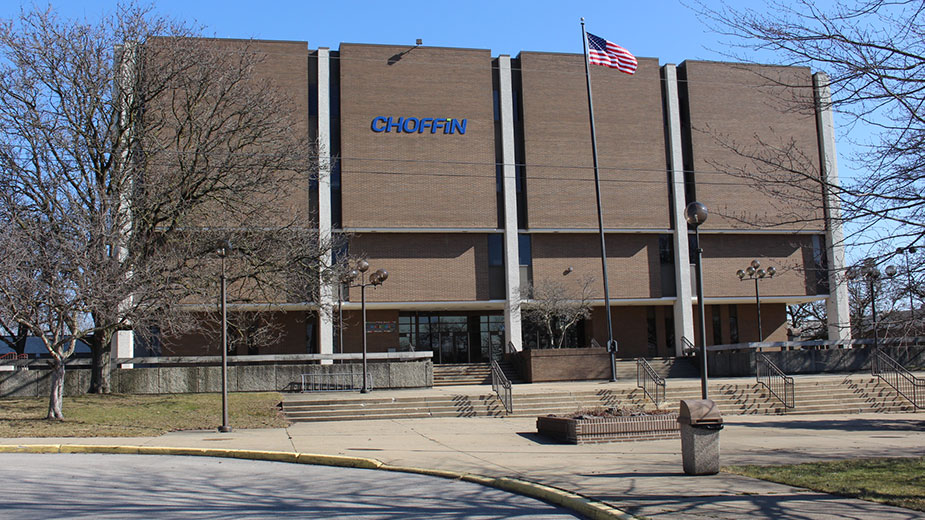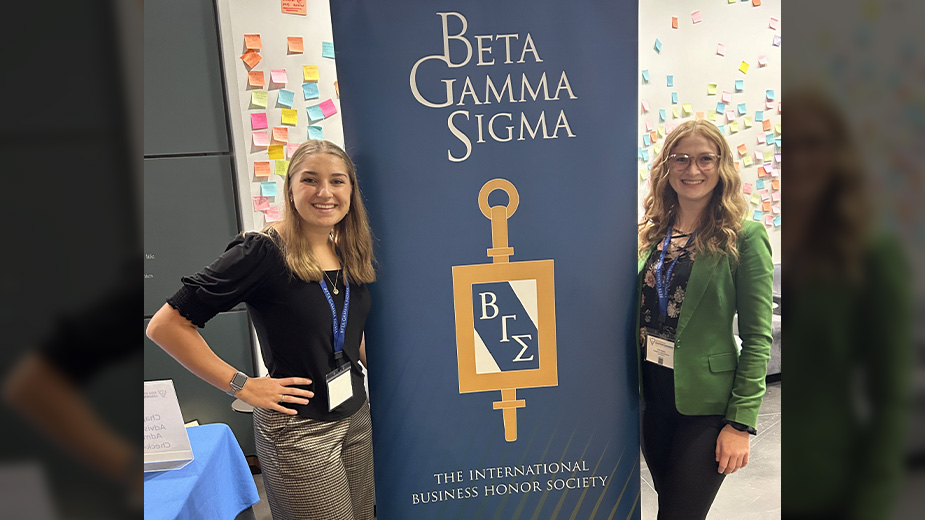AI Is Major Part of Penn State’s Future
UNIVERSITY PARK, Pa. – From free virtual textbooks for students to personalized recommendations for getting involved on campus, Penn State University is exploring new ways to leverage technology and artificial intelligence to enhance support services, teaching and learning, institutional processes, and to help prepare students for careers in an increasingly automated world, according to Penn State President Eric Barron.
With digital innovation as a key element of Penn State’s Strategic Plan, Barron discussed the variety of areas in which the University is using AI and other technology tools to innovate, automate processes, save time and support individualized interactions among students, faculty and staff for the Board of Trustees at its Feb. 21 meeting at University Park.
“With the promise of AI, we’re in a position to transform many areas of higher education. The technological evolution happening at Penn State can support everything from classroom learning and advising to
Among the benefits, Barron said adopting new technologies will help the University realize the full potential of One Penn State 2025, a guiding framework for educational innovation to reimagine student learning and support services. To help create unique learning experiences and give students a competitive edge, Barron said he envisions, for example, students located anywhere in the world being able to use virtual reality to go on a field trip in a geology class.
Other areas include advising and counseling, career services, engagement and retention, financial aid, pedagogy, workforce development, business processes and more.
At the meeting, Barron shared examples of projects, many created by students, faculty and staff, across three key areas:
Student Support Projects
Among a host of projects, a pilot program in World Campus is using AI to reduce more than 6,000 hours that advisers spend annually on routine tasks to enable them to have more individualized time with students. Project LIFT, an early intervention advising program, was tested successfully in fall 2019 to help advisers predict current student performance based on historical data to identify potential areas of concern and help students stay on track academically. Counseling and Psychological Services has implemented a variety of technology-based options, such as WellTrack, and is exploring future possibilities in counseling tele-services to continue to support and connect students with mental health services. To assist students in choosing from more than 1,200 organizations and countless internships and international experiences, a Student Engagement Portal is being developed to make personalized recommendations based on their interests, career goals and past activities. Since today’s biggest employers are using AI to screen resumes and candidates, Career Services also is using Resilient Resumes, an AI tool created at Penn State Berks, to help students create better resumes.
Instructional projects
To help faculty expand on innovative ideas to advance learning, Teaching and Learning with Technology has provided more than $6.2 million in research support over the past four years. Among the more than 1,480 faculty engagements are Eureka!, an AI tool created at Penn State that helps faculty discover new information and research related to their coursework, and BBookX, a tool to make free textbooks for students using open-source materials. This effort has saved students in Information Sciences and Technology and hotel and restaurant management courses more than $200K in textbook costs. Learning spaces like the Center for Immersive Experiences and competitions like the Open Innovation Challenge — which will take place March 20, 2020 — also are helping to encourage student learning and innovative faculty ideas. With a recent proposal by Gov. Tom Wolf to provide $2.35 million in funding for Invent Penn State, the University’s entrepreneurial ecosystem continues to help Penn Staters grow their ideas and accelerate the transfer of new products, technologies and business across Pennsylvania and beyond.
Institutional Projects
Among a variety of efforts, student teams participating in the Nittany AI Alliance are leading admissions-focused projects to enable prospective transfer students to easily calculate transferable credits and to streamline submissions of 85,000 high school transcripts Penn State receives annually. To make the online giving environment more engaging, an intelligent matching tool can tap into donors’ passions and interests to help them identify giving opportunities. To support recruitment efforts and optimize the effectiveness of enrollment advertising, AI is helping to determine and deliver the most relevant content across various audiences. Penn State also is in the early stages of investigating new options to automate processes for identifying and screening potential job candidates to support ongoing talent acquisition efforts.
With AI research projects spanning topics from intelligent tutoring systems for children with autism to detecting discrimination, the ethical and social considerations of the use and study of AI will be a priority in all projects, according to Barron. To help meet these needs, a new Penn State Center for Socially Responsible Artificial Intelligence will help promote the thoughtful development and application of AI.
At the presentation, Penn State students Christie Warren and Joel Seidel joined Barron to share their ideas and projects as past winners of the 2019 Nittany AI Challenge, which invites student teams to develop AI-based solutions within education, health, sustainability and humanitarianism. Following the meeting, trustees will have a chance to tour the Collaboration Commons at Penn State University Libraries and have a virtual reality, 360-degree video experiential opportunity.
“As an institution of higher education, if you’re not innovating, you’ll be left behind,” Barron said. “Penn State is continuing to take new directions and invest in technology to support faculty innovation and teaching and to create engaging, immersive experiences for our students.”
Barron’s full presentation is available here.
SOURCE: Penn State University
Published by The Business Journal, Youngstown, Ohio.



